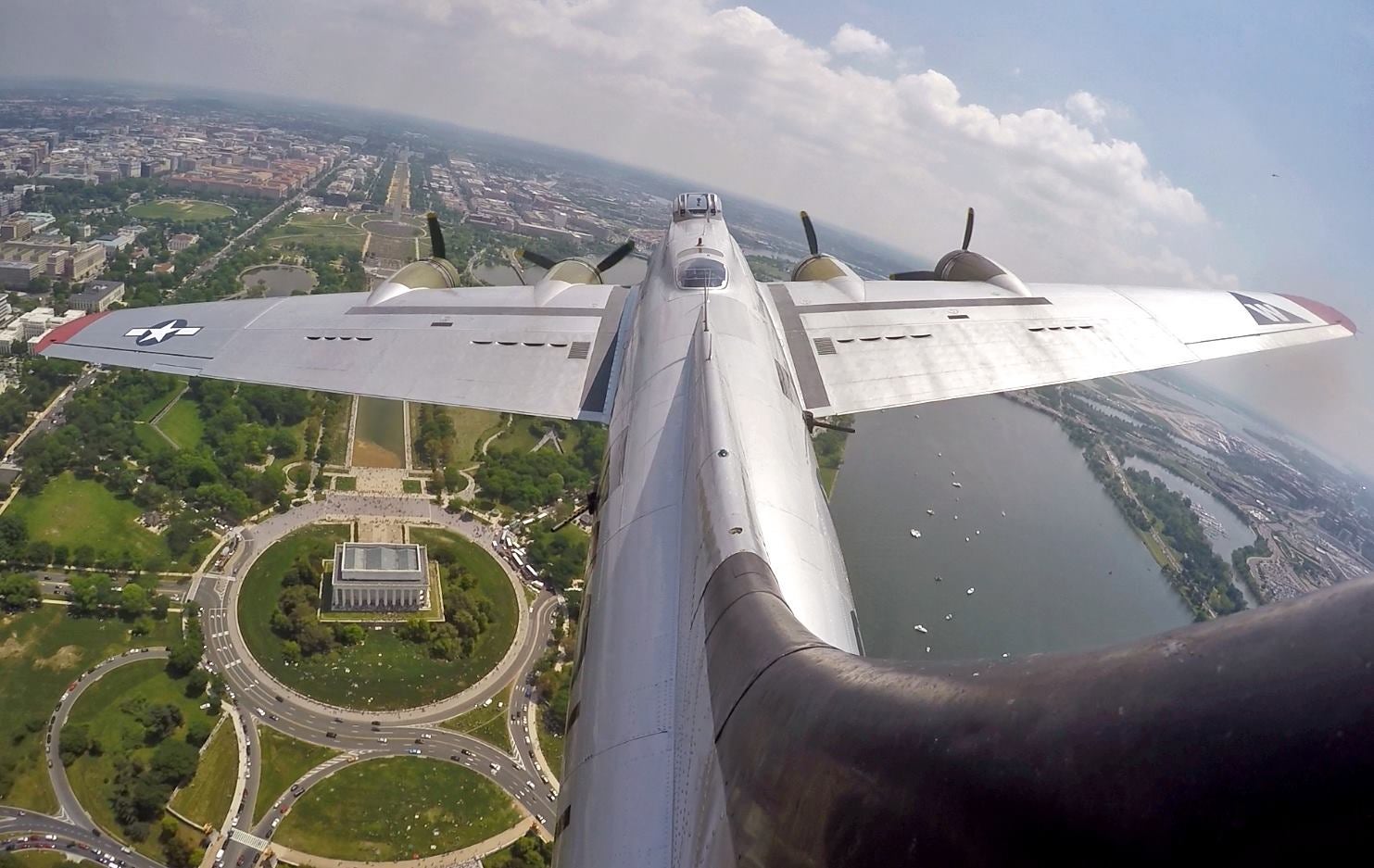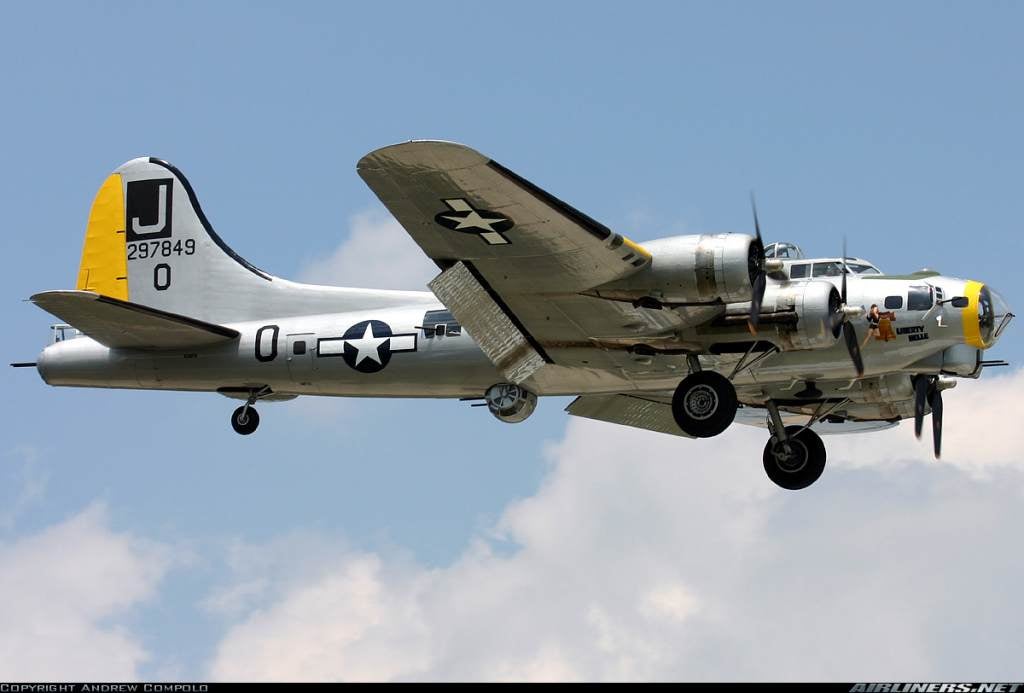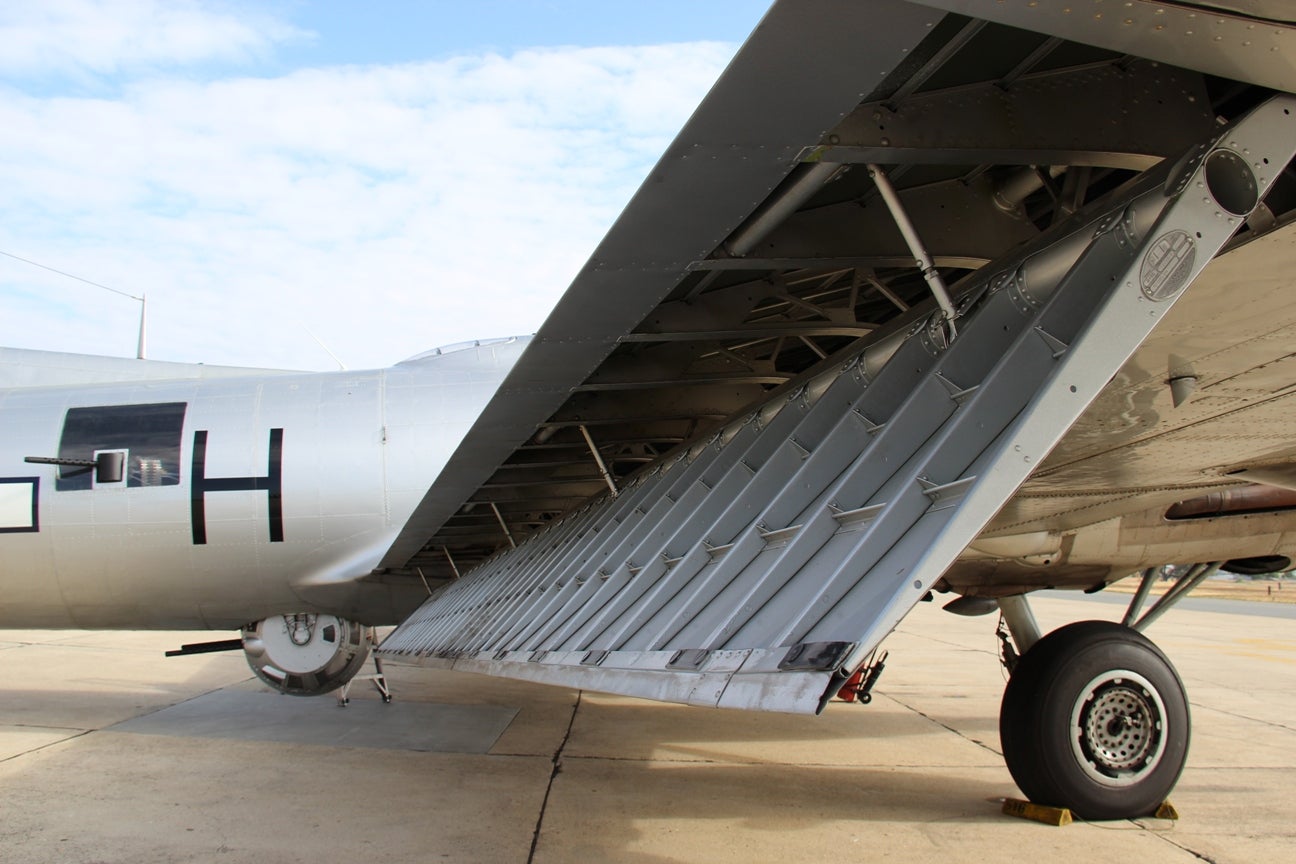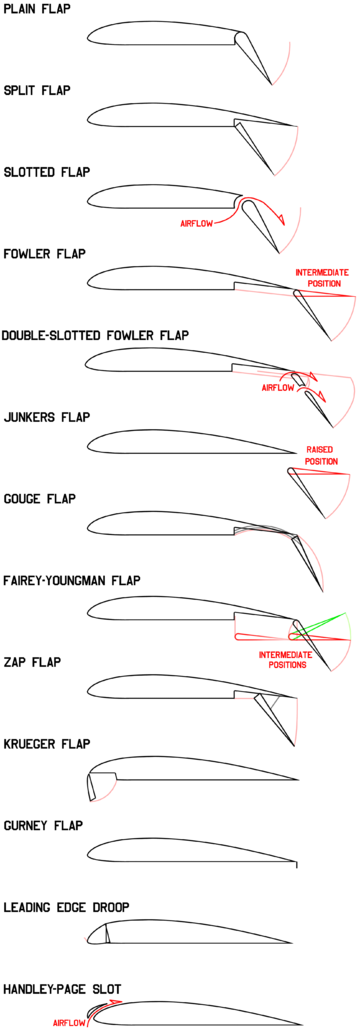 "Jcarr" (jcarr)
"Jcarr" (jcarr)
05/13/2015 at 16:44 • Filed to: Planelopnik
 7
7
 10
10
 "Jcarr" (jcarr)
"Jcarr" (jcarr)
05/13/2015 at 16:44 • Filed to: Planelopnik |  7 7
|  10 10 |
As a follow on to my !!!error: Indecipherable SUB-paragraph formatting!!! from the other day.
!!! UNKNOWN CONTENT TYPE !!!
EAA’s B-17G Aluminium Overcast with a camera mounted on the vertical stabilizer.

 uofime
> Jcarr
uofime
> Jcarr
05/13/2015 at 16:59 |
|
Do B-17s not have flaps?
 Jcarr
> uofime
Jcarr
> uofime
05/13/2015 at 17:03 |
|
They do, but it looks like they just deploy from the underside of the wing.

 uofime
> Jcarr
uofime
> Jcarr
05/13/2015 at 17:10 |
|
Strange, wonder why the went with that design.
 SidewaysOnDirt still misses Bowie
> Jcarr
SidewaysOnDirt still misses Bowie
> Jcarr
05/13/2015 at 17:12 |
|
I just America’d so hard.
 ttyymmnn
> uofime
ttyymmnn
> uofime
05/13/2015 at 17:16 |
|
I never realized that, but Jcarr’s photo is correct, the B-17’s flaps only deploy from the bottom of the wing. Interesting. The -17 does still have ailerons, though.

 uofime
> ttyymmnn
uofime
> ttyymmnn
05/13/2015 at 17:20 |
|
I wonder if it was for the extra strength, it does look like there is a spar extending most of the way out there.
 ttyymmnn
> uofime
ttyymmnn
> uofime
05/13/2015 at 17:23 |
|
Either strength or simplicity. I really have no idea. It makes me want to go look at other Boeing designs of the era and see how they are laid out. It seems those flaps wouldn’t do anything to increase wing area, just create some lift at slower speeds.
 Jcarr
> ttyymmnn
Jcarr
> ttyymmnn
05/13/2015 at 17:33 |
|
From Wikipedia :
Split flap: the rear portion of the lower surface of the airfoil hinges downwards from the leading edge of the flap, while the upper surface stays immobile. [7] Like the plain flap, this can cause large changes in longitudinal trim, pitching the nose either down or up, and tends to produce more drag than lift. At full deflection, a split flaps acts much like a spoiler, producing lots of drag and little or no lift. It was invented by Orville Wright and James M. H. Jacobs in 1920, but only became common in the 1930s and was then quickly superseded. The Douglas DC-3 & C-47 used a split flap.

 ttyymmnn
> Jcarr
ttyymmnn
> Jcarr
05/13/2015 at 17:35 |
|
Well, there you go. Thanks.
 FJ80WaitinForaLSV8
> Jcarr
FJ80WaitinForaLSV8
> Jcarr
05/13/2015 at 18:13 |
|
amazing photo